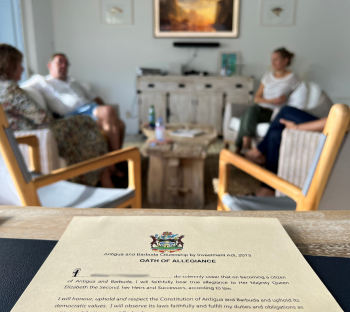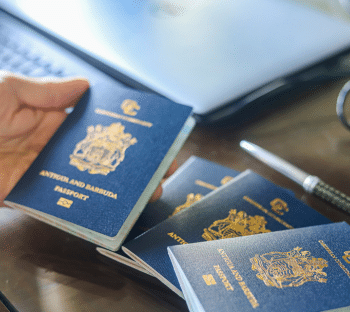One of the most remarkable and standout advantages that the Caribbean’s Citizenship by Investment Programs (CIPs) offer is that you have the opportunity to own a second home in one of the stunning island countries in this part of the world.
Another benefit that Caribbean citizenship programs offer is the chance to obtain dual citizenship. You can become a citizen of the island where you buy your dream home and your country of nationality, as long as both countries permit it, and most do.
These two benefits make buying your dream home in the Caribbean a smart investment and a life-changing decision.
Purchasing the Right Property in the Caribbean
Buying your dream home in the Caribbean requires a substantial investment. This means you have to ensure you choose the right property from the start of your purchasing journey.
We share below a five-step guide that can help you go through the process of buying your dream home in the Caribbean successfully and with as few mistakes and hassles as possible:
1. Set your goals.
With 26 Caribbean countries to select from, all of them boasting spectacular beaches, other natural attractions, and laid-back vibes, choosing where to buy your dream home is the first hurdle you have to overcome.
You can narrow down your options by knowing what you want to get from your property in the Caribbean.
If obtaining dual citizenship is one of your goals, Antigua and Barbuda, Dominica, Grenada, and St. Kitts and Nevis should be on the top of your list. These countries have the most affordable and fastest CIPs that allow you to gain a second passport through real estate investment.
The passports from these countries are some of the most powerful in the world, allowing you to enter numerous countries visa-free or with visa-on-arrival around the globe.
These countries also offer several tax benefits to citizens, including minimal or no income, capital gain, foreign income, gift, inheritance, and wealth taxes, should you decide to become a permanent resident in the future.
If you plan to retire in the Caribbean, these countries are considered by many as belonging to the top retirement destinations here.
Since these four countries are quite popular, you can also turn your dream home into a rental and earn additional income whenever you’re not in the Caribbean.
Identifying your specific goals will not only help you select the right country but also help with choosing the right residential property and neighbourhood.
2. Do some research.
After narrowing down your options, get more information about the place where you want to buy your second home.
Ensure the community is safe and has access to essential amenities and facilities. Whether you want to live in the Caribbean permanently or temporarily, being near supermarkets, farmer’s markets, pharmacies, clinics, hospitals, and other frequently visited places would work to your convenience.
Also, make sure you go beyond the beaches and island vibe. Find out how developed the area is in terms of infrastructure including roads, communications, and other essentials so that living here won’t be stressful for you.
3. Work with qualified advisors.
Most Caribbean countries won’t require you to be physically present when purchasing the property. However, it doesn’t mean you should go through the process alone.
Once you have chosen a country and specific area, look for a property advisor you can work with. They have a ready listing of houses, villas, and condos that can easily be your dream home and your investment for your second citizenship.
A property advisor will also guide you through every step of the entire property buying process.
Most countries with CIPs, such as the Antigua and Barbuda citizenship program, won’t require your presence during your second passport application process. However, you will be asked to apply with the help of a licensed agent.
As such, you have to look for a government licensed agent, who can assist you with your CIP application. Ideally, it should be one that can provide add-on or post citizenship services, including opening a bank account, assisting with utility services application, and acting as your official in-country representative.
Several citizenship consultancy firms in the Caribbean provide both real estate and immigration advisory services. It is best to get help from such firms for more cost-effective and smooth transactions.
4. Collect all requirements.
After choosing your new home, start preparing the documents you need to purchase it and applying for your second passport if you are getting one.
These requirements include:
- Bank statements and other evidence of funds and financial history
- Wealth disclosure statement
- Professional references
- Evidence that you have a clean criminal record
Also, ask your agent to obtain a valuation and survey report.
The valuation report is a document that provides information regarding the property’s true value.
On the other hand, a survey report will help you identify the legal boundaries of your new property and check if there are any encroachments you may need to deal with.
Your advisors can help you complete and submit all these requirements so that you can save time and avoid plenty of guesswork.
5. Prepare for all expenses.
Another important step involved in buying your dream home in the Caribbean is preparing for the total investment cost.
Aside from the cost of the property, you also have to prepare for these expenses:
- Real estate commission fees
- Consultants’ fees
- Valuation and survey fees
- Land transfer taxes
Whether you are taking out a loan or dipping into your savings, be prepared to address all these expenses once you are asked to pay for them.
Working with a trustworthy advisor can help you navigate all these steps successfully.
Speak with one of our consultants so that we can assist you in finding and buying your dream home in the Caribbean.


